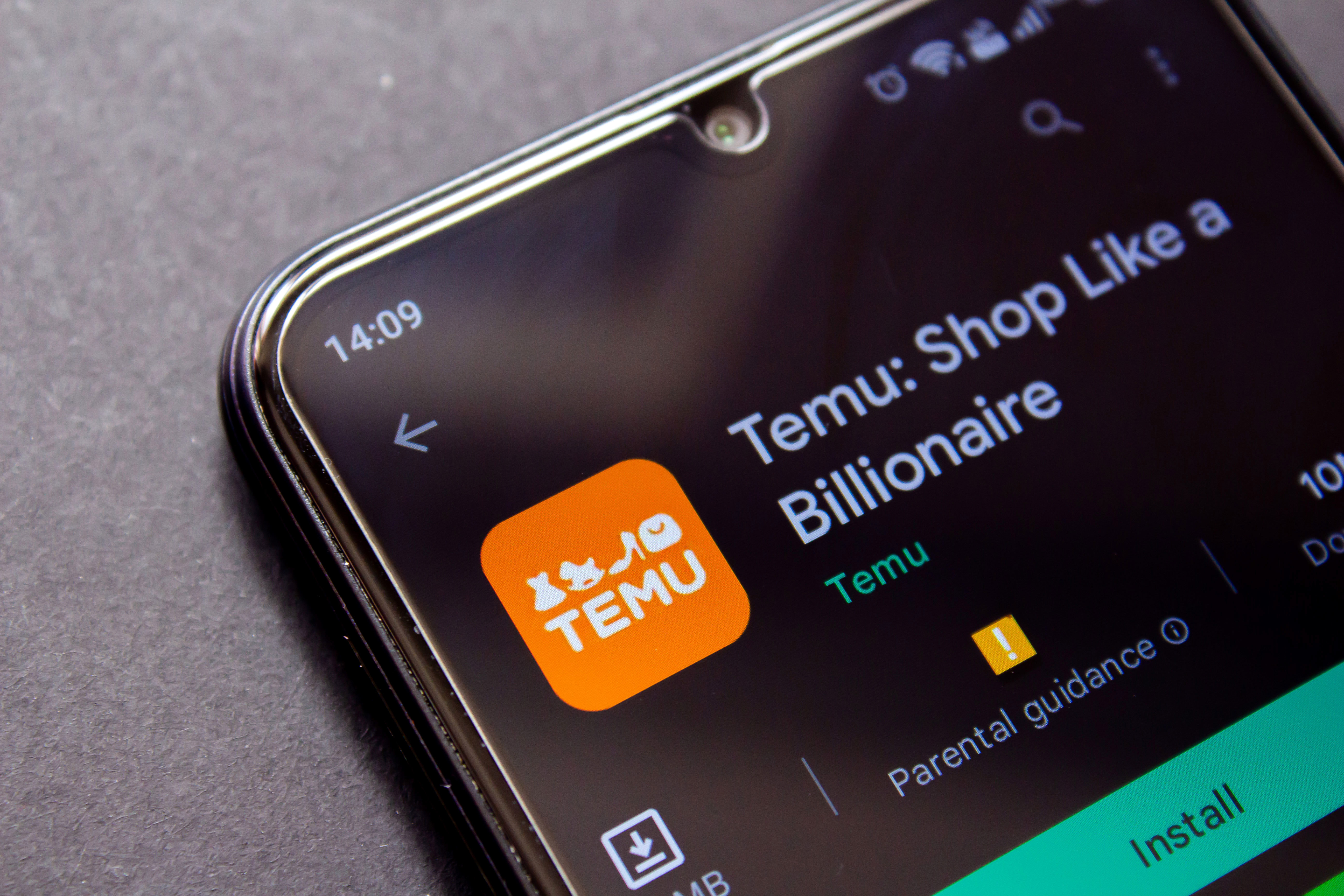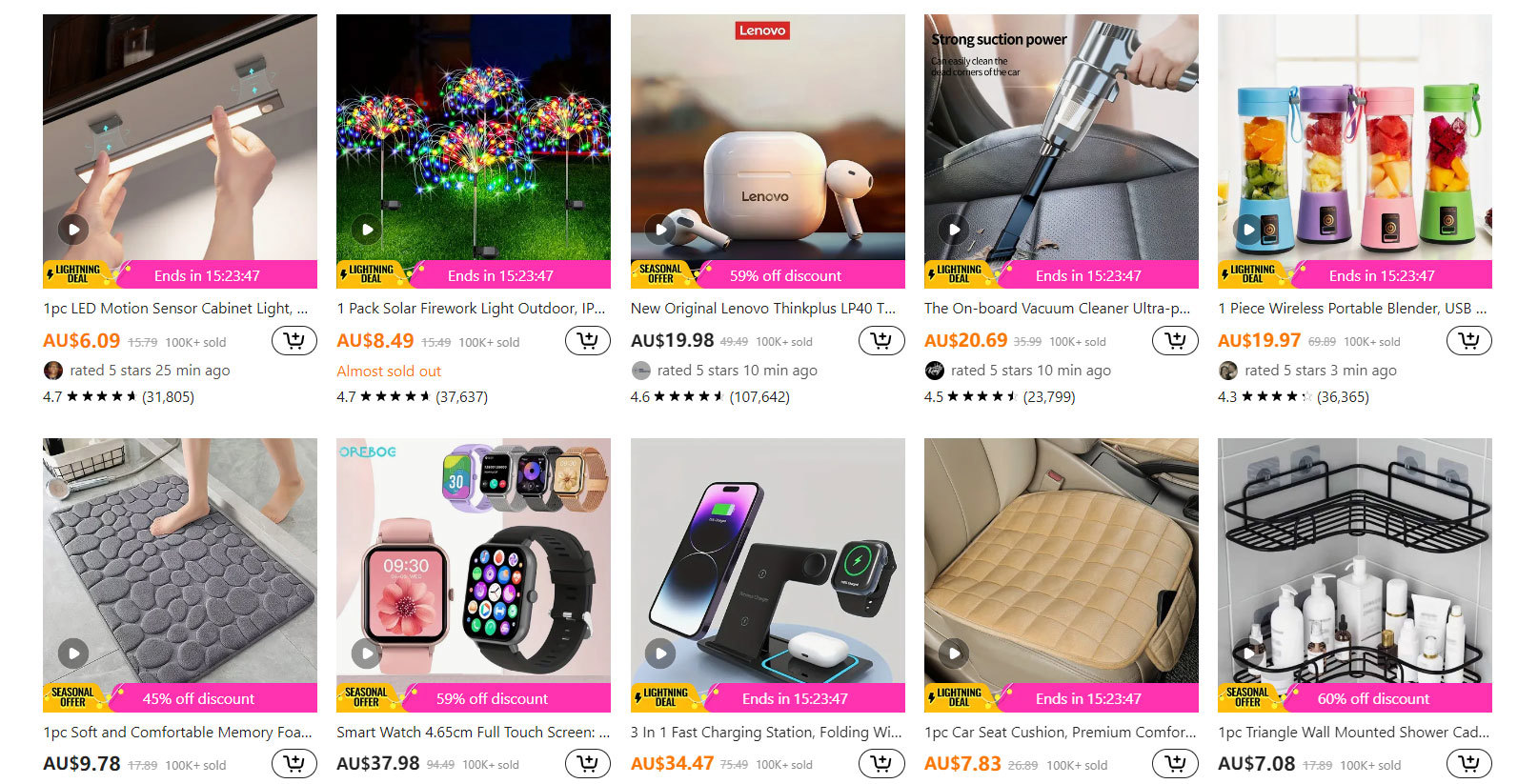Temu, a new online shopping platform which has links to China, has quickly become the most downloaded app in Australia.
There's good reason Temu has spread like wildfire.
It sells pretty much everything at perplexingly low prices; it has a slew of weird and wacky items that will draw a guffawing crowd around anyone's office desk; and it feels like, no matter where you turn right now, Temu is on every street corner of the internet.
READ MORE: Online shopping giant wants 1000 workers for Christmas rush
Some say Temu's business model, with products mostly shipped directly from a vast network of Chinese factories, all hawked with an arsenal of slick marketing and social media strategies, may change the way retailers operate online.
However, much like Chinese-owned TikTok, which has become a serious threat to Facebook and other multi-billion-dollar Silicon Valley success stories, Temu's rapid rise and penetration into Western markets has raised questions.
Some cyber experts express concerns over security and data sharing, while users have a more simple question: is Temu legitimate?
What is Temu?
Temu is an online retailer.
It is based in Boston in the US, but shares the same owner as Chinese social commerce giant Pinduoduo. Investigations into Pinduoduo have highlighted concerns about users' online security.
Temu was not implicated, but its links to Pinduoduo make some privacy and safety experts uncomfortable.
What does it sell?
Everything. Like, seriously. Some call it China's digital flea market to the world. Others claim it may threaten Amazon and eBay.
Temu's marketplace covers the gamut from home goods to clothing to toys and electronics. There's full protective face shields going for 81 cents, car cleaning gel at 25 cents, exfoliating foot slippers just $1.49 and anti-bunion contraptions costing $2.49. If you can think it up, it's there.
Temu has similarities to fellow budget online retailers like Shein, AliExpress and Wish, but somehow it's even cheaper.
What's different about it?
Quite a lot. But the first thing you'll notice are, ta-da, the prices. Products are cheap.
So cheap, in fact, that it's made some people wonder if Temu is real. How can Temu can sell goods at such strikingly low prices, they ask?
READ MORE: Vegan baking chocolate recalled after milk found
So, is it a scam?
No.
"My gut feeling is no," Paul Haskell-Dowland, a cybersecurity expert at Perth's Edith Cowan University says.
He tells 9news.com.au that if you place an order with Temu then the weight of evidence online suggests that it's going to end up in your mailbox.
But Haskell-Dowland cautions the adage "you get what you pay for" applies.
"People should bear in mind there's a reason it's cheap."
Are there red flags?
There's nothing about online chatter around Temu that can't be rationally explained, Haskell-Dowland says, such as missing packages or delivery delays.
But because of Temu's popularity, fake versions of the app with malicious software are circulating, he said, so people should only ever download the app from official Apple or Android app stores.
And as for the data Temu is collecting?
"Yes, it's broad," Haskell-Dowland says.
"Yes, it contains information about your purchasing habits, potentially the devices that you're using, and possibly other things that we don't yet know about."
But, he says, that's really no different to any ecommerce app on your mobile, be it a Silicon Valley giant or Chinese-owned company.
READ MORE: Australia's cheapest supermarket revealed
Is Temu really giving away free items?
It's true. Temu does run campaigns where users can build credits they can then spend on the platform, essentially buying for free.
These campaigns ask users to promote Temu on their socials or encourage family and friends to create an account. Credits can also be earned in spin-the-wheel games which appear on the site.
Dr Shasha Wang, a marketing lecturer at QUT's business school, says Temu's marketing strategies can be "addictive" and "effective".
What is the secret to Temu's marketing success?
Users are besieged with lightning deals and eye-catching limited time offers.
These tactics, Wang says, "really appeal to people's sense of missing out", especially in tandem with rock-bottom prices. Gamification, such as spin-the-wheel reward games, are a very clever tool, she adds.
Another key factor is timing. Wang says Temu's launch during a cost of living crisis and rising global inflation was fortunate. "The value people are finding found on Temu is really appealing," she says.
Big discounts, free shipping and loyalty programs also reel in users, who see products curated by Artificial Intelligence based on user interests and displaying items most likely to secure a sale.
Is it too good to be true?
Based on his analysis, Haskell-Dowland says it's not uncommon for Temu's most attractive deals to disappear if you try to buy more than one of the same item or pick up your first haul.
That makes sense, from Temu's perspective, Wang says. Getting people to make that first purchase is key, she explains. "Once people start, they will often keep using it."
Temu's catchphrase is to "shop like a billionaire". So everything it does is geared towards making you feel like you're getting a lot of items for splurging very little cash.
But watch this space. Temu's bargain prices may not last.
Some pundits think Temu is, for now, content to incur some losses while it tries to hoover up bargain hunters and market share, in a bid to take on Amazon and other ecommerce retailers.
Temu did not respond to 9news.com.au's request for comment.






